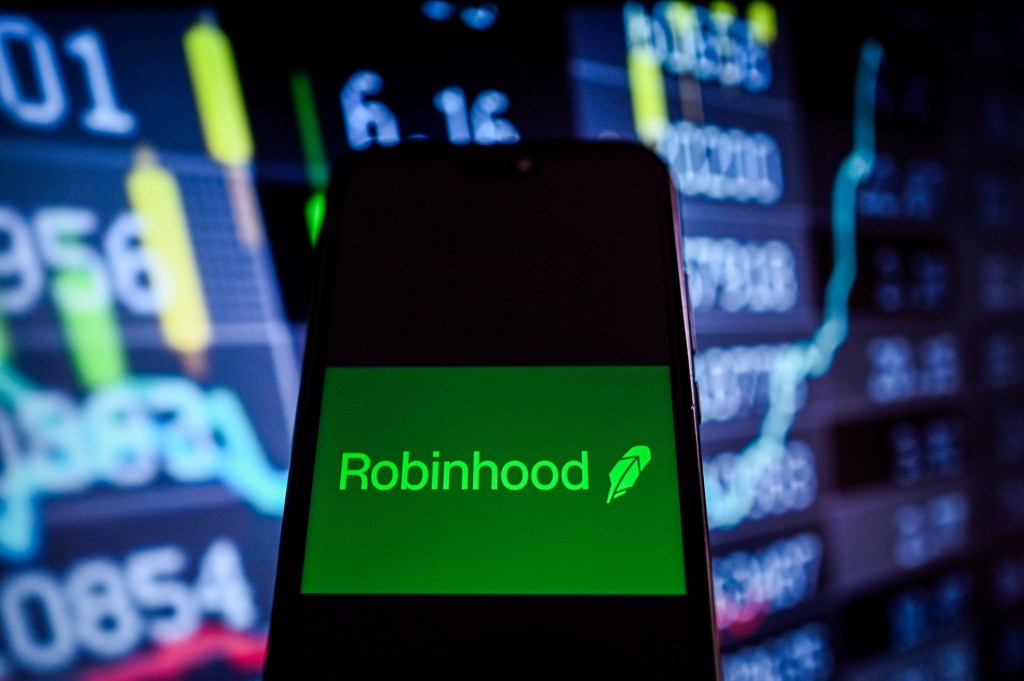When Bowery Capital general partner Loren Straub started talking to a startup from the latest Y Combinator accelerator batch a few months ago, she thought it was strange that the company didn’t have a lead investor for the round it was raising. Even stranger, the founders didn’t seem to be looking for one.
She thought it was an anomaly until she talked to about nine other startups, Straub told TechCrunch. They were all looking to raise nearly identical rounds: $1.5 million to $2 million with around a $15 million post-money valuation, while giving up only 10% of their companies — aside from YC’s standard deal, where it takes a 7% stake. Most had raised the majority of that already from multiple angels with only a few hundred thousand dollars’ worth of shares left to sell.
“It was impossible to get double-digit ownership in any of the deals,” she said. “At least two of the companies I spoke to had a bunch of angels but no institutional capital.”
These dynamics mean there are likely numerous startups among the 249-strong YC winter batch that won’t be raising from traditional seed investors at all. That happens with every cohort, of course, but the difference this time is that the traditional seed investors would have liked to fund them. However, many seed investors, like Straub, have a 10% equity ownership minimum. In fact, selling 20% of the startup is considered fairly standard for a seed round. Institutional investors typically require 10% equity to lead a round, too. In its early-stage advice guide, YC even says that most rounds require 20% but also advises, “if you can manage to give up as little as 10% of your company in your seed round, that is wonderful.”
A YC spokesperson confirmed that they encourage founders to only raise what they need. They also said that since YC upped its standard deal to include $500,000 of capital in 2022, more companies are raising less and looking to give away less equity. YC doesn’t spend much time on fundraising in the program, a nod to the success of Demo Day, but companies can always talk about it with their group partner, the spokesperson added.
There is nothing wrong with seeking less money (most YC companies are very early in their journey after all). However, these startups are still seeking higher valuations than what startups that didn’t attend the storied accelerator are getting in the wild. The current median seed deal size is $3.1 million, according to Q1 PitchBook data, with the median pre-money valuation sitting at $12 million. YC startups are asking for larger valuations on less money and for smaller stakes. This does not include the 7% equity stake from YC, which Straub said many companies consider separately.
Straub wasn’t the only VC who noticed that more YC companies seem to be shooting for that 10% goal this time around. Another VC told TechCrunch that in a tough fundraising market — as 2024 is — YC’s 7% stake may prompt startups to look for less dilution, while a third VC said that many of the rounds in this batch looked more like pre-seed or family-and-friends rounds than seed.
While valuations are obviously down from the wild bull days of 2020 and 2021, with the latest YC batch, “the round sizes were also very restrained. You are seeing round sizes that are more like $1.5 million and $2 million, fewer that are larger,” said an institutional VC who looked at potential deals.
Of course, out of hundreds of companies in the cohort, there were outliers. Leya, a Stockholm-based AI-powered legal workflow platform announced a $10.5 million seed round last month led by Benchmark. Drug discovery platform startup Yoneda Labs raised a $4 million seed round in May from Khosla Ventures, among others. Basalt, a software company focused on satellites, raised a $3.5 million seed round in May led by Initialized Capital. AI medical transcription startup Hona raised $3 million from a multitude of angels, corporate funds and institutional VCs like General Catalyst and 1984 Ventures.
Just for comparison, REGENT, from the Winter 2021 cohort, an electric seaglider company, raised $27 million across two rounds with a $150 million pre-money valuation. In 2020, a16z invested $16 million into one of the buzziest startups of the summer cohort, internal compensation Pave, formerly known as Trove, for a rumored post-money $75 million valuation. YC valuations got so high in 2021, they became somewhat of a joke in the industry and on social media.
But even as the market began to soften, YC deals remained expensive. Every (Summer 2023), a bookkeeping and payroll startup, raised a $9.5 million seed round led by Base10 Partners in November 2023. Massdriver (Winter 2022), a DevOps standardization platform, raised $8 million in what it called an angel round in August 2023 led by Builders VC. Bluedot (Winter 2023) raised a $5 million seed round with no lead investor in June 2023.
What this trend tells us about YC startups
The trend toward smaller rounds shows that YC’s current batches of founders have become more realistic toward current market conditions. But they are also expecting that the YC badge will be enough for institutional seed VCs to either ignore their fund’s ownership requirements or be willing to pay over market value to invest in their young startups.
Many of these startups will find that being a YC-backed company just isn’t enough to override a VC’s investment requirements. And while going through the accelerator program definitely does give these companies a level of prowess compared to startups of the same age that haven’t, many VCs just aren’t as interested in YC companies as they once were.
From the heady days when YC cohorts grew to more than 400 companies, the accelerator isn’t considered as selective as it once was by many VCs — even though it has shrunk its cohort size in recent years. And its startups are also thought to be too expensive. Investors complain about the inflated valuations on LinkedIn and Twitter, and a TechCrunch survey last fall found that VCs that had invested in the past were sitting out now mainly because of the price to entry for these companies.
The companies seem to feel some of the shine fading as well. One YC founder in the recent batch told TechCrunch that their startup is raising more of a traditional seed round because it was further along in the startup journey when it joined YC. But the person knew of many others seeking smaller rounds because they weren’t confident they could raise more at their stage, which makes the higher valuation all the more interesting.
“It’s gotten significantly harder to put $1.5 million and a $15 million [valuation] together than it used to be,” the YC founder said. “As a result of that, I think more founders are getting to like $600,000 and $700,000 and that’s the only checks they can get at the end of the day.”
The founder added that some other YC founders will look to raise $1.5 million from angels with the hope of drumming up interest from institutional or lead investors after the fact. But as seed funds have gotten larger in recent years, and many seed investors are looking to write larger checks, some YC companies are choosing to forgo a lead investor in these conditions.
The pros and cons of a smaller seed
If YC startups treat these rounds more like pre-seed funding, with the intent to raise a seed down the line, it’s not all bad. Many startups that raised lofty seed rounds in 2020 and 2021 with hefty valuations likely wished they raised less at a lower valuation in the current Series A market crunch. Raising these smaller, less-dilutive rounds, mostly from angels, also allows companies to grow a little before raising a proper seed.
But the risk is, if companies are labeling these smaller rounds as “seed rounds” with their sights set on next raising a Series A, they could run into problems.
Some companies that raise a small seed round won’t have enough funds to grow into what the Series A investors are looking for, Amy Cheetham, a partner at Costanoa Ventures, told TechCrunch. She also noticed YC deals seemed a bit smaller than usual this time around.
“I worry those businesses end up getting under capitalized,” Cheetham said. “They will have to raise a seed plus or whatever they need to do. There is an issue with that construct.”
And if the startup does need more money between a seed and Series A round, not having institutional backers to turn to will make getting that capital a bit trickier. There’s no obvious investor to help with raising a bridge round or other extension funding. This is particularly so for the startups that don’t have a lead investor. That tends to mean they’ve got no investor with a large network holding a board seat. No investor board member can also mean they’ve got no one who will introduce the founder to other investors, greasing the wheels for the next raise.
Many startups realized the downfalls of raising without a committed lead investor in 2022 when times started getting tough and they didn’t have that champion to turn to for money or to tap into that person’s network.
But YC president and CEO Garry Tan doesn’t seem as concerned about that. “While it is helpful to have a good investor, the reason why a company lives or dies is not who their investors are but whether they make something people want,” Tan told TechCrunch over email. “Fundraising is the beginning of a starting line of a new race. Winning the race is what matters, not what brand of fuel you put in the tank.”
There have always been YC companies that raise smaller rounds, and outliers that score big capital checks and valuations, but if more companies lean toward smaller rounds, it will be interesting to see if this turns off seed investors who have historically spent their time talking to YC companies looking for deals.
Ironically, in the long run, that actually may be a good thing. Those investors may be interested in a Series A.
“I’m probably more excited about going back to lead Series A deals that were in a batch a year or two ago,” Cheetham said. “Some of that pricing will work through the system and then you can go and write a sizable check at the A. The best companies, the seed round has felt a little challenging to invest in right now.”































Comment